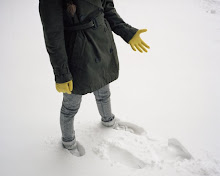
gaddam its been a long time. excuse my mediterranean hiatus, I'm going to try to be more consistant. For my own sake. Originally this blog was an attempt to force myself to discover new artists and learn more about them. New aim: write a post twice a week. Hopefully this wont be hard in my new parentally-imposed solitary confinement.
After visiting a friend in Manchester last week and hitting up the galleries and such, I found my vision suffocated with Lawrence Stephen Lowry - the artistic pride straight from Manchester's bosom. Poor Manchester. He and his fame is paraded everywhere - the Lowry Gallery holding a permenant collection, while his work is proudly displayed in the Manchester Gallery, and even lends his names to countless centres, theaters, roads, etc.
"A Riverbank"

Born in November 1887 and dying in February 1976, Lowry was an English artist born in Barrett Street, Stretford, Lancashire. Many of his drawings and paintings depict nearby Salford and surrounding areas, including Pendlebury, where he lived and worked for over 40 years. Lowry is famous for painting scenes of life in the industrial districts of Northern England during the early 20th century. He had a distinctive style of painting and is best known for urban landscapes peopled with human figures often referred to as "matchstick men". He also painted mysterious unpopulated landscapes, brooding portraits, and the secret 'marionette' works (the latter only found after his death).
Street Scene (Southport)

Because of his use of stylised figures and the lack of weather effects in many of his landscapes he is sometimes characterised as a naïve 'Sunday painter' although this is not the position of the galleries that have organised retrospectives of his works.
Muted pale colours and canvases thriving with somewhat ungrounded figures, Lowry captures the somewhat bleakness of the industrial north and in some instances perhaps the consequences (the cripples). Yet I feel detached, these images seem to come out of a children's book, and are thus unrelatable, yet Lowry was know for attempting to capture throngs of people in an attempt to portray human plight and society. I think i take the view of his work appearing niave, yet it hard to call dark and ominous industrialization and cripples a niave subject.

its grim up north
ReplyDelete